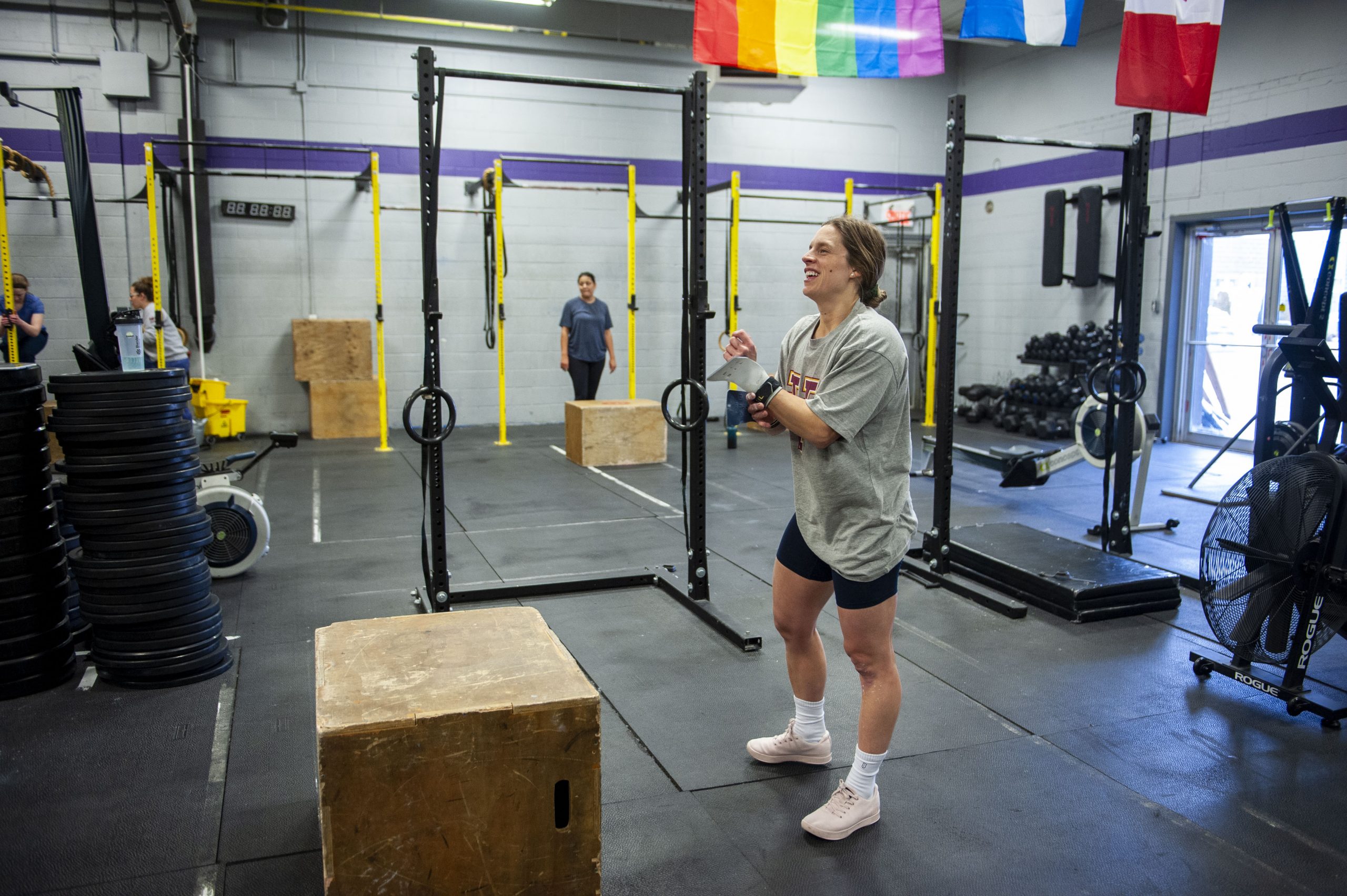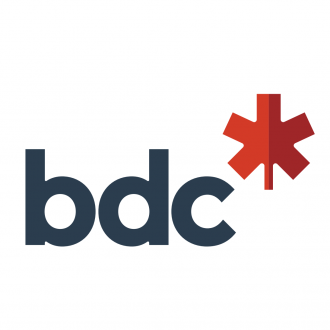Even as a five-year-old, Emmanuelle Blais loved sports, especially hockey. She played as a college student in the NCAA and as a professional with the Stars and Les Canadiennes de Montréal. She says hockey—and it’s highs and lows—made her the person she is today and taught her the most important lessons she’s learned: carving out a place for herself and never taking anything for granted. Today, she’s the strength and conditioning coach for PWHL Montréal and the co-owner of Club Le Vestiaire training centres, where fitness is for everyone.
Tell us about your business, Club Le Vestiaire gyms.
We’ve created fitness centres that are accessible and inclusive safe spaces. Club Le Vestiaire’s mission is much broader than functional group classes: it’s about improving people’s health by focusing on their physical, psychological and social well-being through training. Our gyms are the perfect place for anyone who wants to effectively take ownership of their health and raise their fitness level. The gyms are warm and welcoming unpretentious places that are conducive to connection. For over five years, we’ve been shaping the functional training landscape in Québec with innovative training and courses, leading-edge coaching techniques and our contributions to our communities.
Gyms can be daunting places for a lot of people. What are the values that make yours different?
At Le Vestiaire, love, respect, acceptance, mutual support and caring are at the core of what we stand for. We want to provide spaces where our members work out to optimize their health, adopt good habits, start conversations, have fun and encourage each other. Our gyms are about inclusiveness and respect for all so our members can thrive.
What impact have Le Vestiaire gyms had on the industry?
My partner Karim created the functional training federation to promote sports participation among people of all ages, make functional training more accessible and give it an amateur component. That also meant our training centres could offer sport-study programs. Beyond that, I don’t dwell on our impact on the industry very much. I’m more focused on pinpointing the positive things we do that make a real difference in our members’ lives. There’s no doubt that physical activity reduces the risk of disease, but it also keeps us mentally healthier. I like to think we make a positive difference in the lives of everyone who comes through our doors.

What do you wish you’d known about entrepreneurship from the get-go?
That it’s important to surround yourself with professionals in areas you’re not an expert in. For us, that was accounting and finance. Today, we’re extremely fortunate to be able to count on competent people we can trust, but that wasn’t always the case. It definitely would have saved us from making a few mistakes!
What is your proudest moment since Le Vestiaire was founded? How do you hope your gyms will evolve?
During the COVID-19 pandemic, we created our Le Club Le Grand V non-profit to reduce social inequalities through sport. Our mission is to introduce teenagers to functional training: they join a team that becomes a support network at a critical time in their lives. Our program imparts healthy habits and social skills teens then carry with them outside the outside the gym. We provide a space where young people set goals, challenge themselves, deliver on their commitments, follow instructions, find support and respect and develop self-confidence.
How does your business reflect the values that are most important to you?
Our gyms, our trainers and our services directly reflect who Karim and I are as individuals. We’re both part of groups that aren’t always welcome everywhere. Karim is Moroccan and Muslim. I’m a mom, and my partner is a woman. We’re highly sensitive to negative reactions because we’ve experienced them ourselves. So in our gyms, there’s zero tolerance for any kind of discrimination.
What have you learned as a queer woman in the fitness space?
There are very few women gym owners. Often, potential collaborators still prefer to talk to my partner, and not me, about project development. It’s a daily struggle. But it’s important to remember that women have such a vital place in entrepreneurship, and we need to take it.
Photography: Arianne Bergeron

